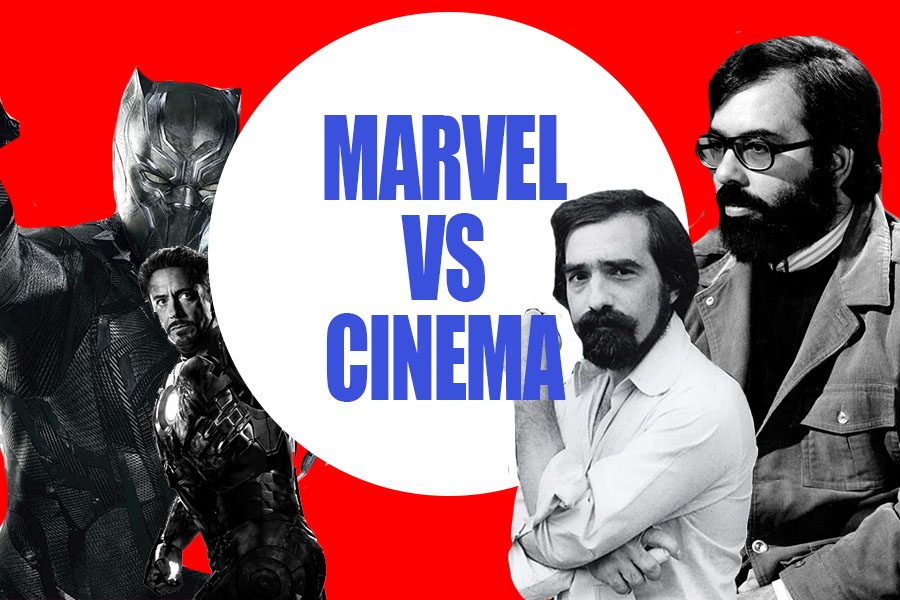Marvel vs Cinema
October 31, 2019
Recently a few renowned filmmakers have made claims that the Marvel movie franchise, as well as other superhero movies, should not be considered true cinema. Many of these claims are coming from stars of traditional cinema who do not think that the franchises should be stuck into a category with other films such as The Godfather or Taxi Driver. So, why do they think this, and is there any truth to their statements?
Two main directors that have made these claims are Martin Scorses and Francis Ford Coppola. In an interview with Empire magazine, Martin Scorses claimed that the Marvel movies were “not cinema,” after he attempted to watch the films and could not get into them. He likened the movies to “theme-parks,” as he claims that they are very high production, yet do not have a lasting impression and do not express the human emotion.
Fancis Ford Coppola made similar claims in responding to Scorses at the Lumière Festiva, only going a step further to call the films “despicable,” because he believes they do not take any risks. He claimed that they push making commerce films over art. Some may agree with this as superhero movies typically follow the same plot. It may seem as though sometimes the films are just being recycled with the same ideas. Not many movies that could be placed in this category ever go against that grain. Many people expect to learn something from cinema, to gain some sort of enlightenment, but when viewers are seeing the same thing everytime, there is not much to be learned.
Many people may simply get the idea that Coppola is against franchises, as that is basically what his quote leads you to believe. Stand alone films often have much more impact than series, as they get the point across in a singular film, which takes a lot more risk and work in general. Writers have to create faster character developments that relate to viewers and get them to care about them in roughly an hour and a half. Franchises on the other hand have it easier and can make a character arc last for three films. Some may consider this even more of a feat though. However, Coppola has his own franchise, The Godfather. So, perhaps it is possible to still leave an impact while using the franchise format, just look at The Lord of the Rings trilogy, a very praised and renowned set of films. So then, where is the line drawn between overdone and meaningful in franchises?
Obviously, all of this is up to interpretation from the audience. Many Marvel fans would be quick to say that the films are meaningful and do leave a lasting impression. Many actors of these films have stood up and said basically this. Robert Downey Jr., who plays Iron Man in the Marvel films, responded by saying: “I appreciate his opinion. I think it’s like anything where we need all of the different perspectives so we can come to [the] center and move on.” Even the CEO of Walt Disney responded to these statements. “I don’t quite get what they’re trying to criticize us for when we’re making films that people are obviously enjoying going to because they’re doing so by the millions.” He ended his point with basically saying that everyone is entitled to their opinions.
So, although Marvel movies may not seemingly fit into the ideal box of traditional cinema, anyone can claim whatever they want. At the end of the day cinema is art, and art can be interpreted however one want, and by whomever wants. Criticisms like this happen all the time with many different types of film, but really, it is more up to the audience and what they want than what a few directors do.












